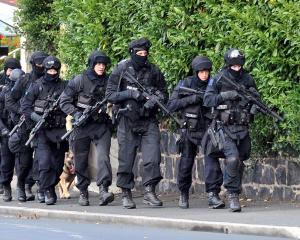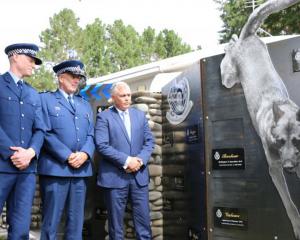
"I do not consider that it is appropriate in any way for members of the family of Paul Wilson to attribute blame or responsibility to any member of the police or to the police generally, for the death of their son," Mr Crerar said.
His finding, made public yesterday, follows the inquest last November into the death of Mr Wilson (28), an engineer, of Roxburgh, on February 2, 2011.
In their evidence at the inquest, Mr Wilson's parents, Jeff and Sue Wilson, criticised the police response to the emergency.
Paul Wilson and brother James worked on the Talla Burn hydro power scheme, owned by the Wilson and Hore families, on Beaumont Station.
Paul and his father were at the powerhouse on February 2 and, about noon, Paul said he was going to take water samples from the Talla Burn and would be away for about 15 minutes. His father contacted police at 2.54pm after family and friends had searched for Paul, with no success.
Jeff and Sue Wilson were concerned by what they believed to be deficiencies in the police reaction to, and the execution of, the search for their son, Mr Crerar said.
"No evidence has been provided to establish that the search was not managed to an appropriate professional standard.
"In the searchlight glare of hindsight, some issues have been identified which could have been handled better, but it must be accepted that, even with such enhancements, a positive outcome of the search - finding Paul Wilson alive - would have been unlikely in the extreme," Mr Crerar said.
He found Mr Wilson drowned after falling into the flooded Talla Burn and being swept downstream. Mr Wilson's body was found in the Clutha River a week after he went missing.
The decision by Otago rural police area commander Inspector Mike Cook to stand down the Otago Regional Rescue Helicopter on its way to search for Mr Wilson was criticised during the inquest by Senior Sergeant Brian Benn, of Dunedin, and rescue helicopter pilot Graeme Gale, of Outram.
Snr Sgt Benn, an experienced search and rescue co-ordinator and the leader of the Dunedin Water Rescue squad, said it was the wrong decision and he did not think Insp Cook was the right person to be making that decision on the search at that time.
Mr Gale also said at the inquest the decision was a mistake. He had returned to base after being stood down and then continued the search, at the Wilson family's request. Nobody knew whether the delay caused by the stand down might have changed the result.
Insp Cook told the inquest he made the decision to stand down the rescue helicopter and substitute it with a local helicopter after learning Mr Wilson had been missing for about three hours.
After the inquest, Mr Crerar asked police further questions around the stand down of the rescue helicopter.
He was told Insp Cook was not in command of the search, but he was the supervising officer for those in control of the search.
The decision appeared to be the only one he made.
"Insp Cook, with justification, on learning that Paul Wilson had been missing for three hours, considered that he was entitled to assume the worst and considered himself entitled to `stand down' the rescue helicopter, preferring instead the use of local search helicopters," Mr Crerar said.
"It is the responsibility of those in control not only to make decisions but also to consider the availability of all assets. One significant asset available to Insp Cook was the expertise of Snr Sgt Benn. In retrospect, a consultation between Insp Cook and Snr Sgt Benn would have been appropriate."
Search controllers should consider all the assets available and although the cost of deploying those assets was a factor to be considered, "this should not be the dominating factor", Mr Crerar said.








